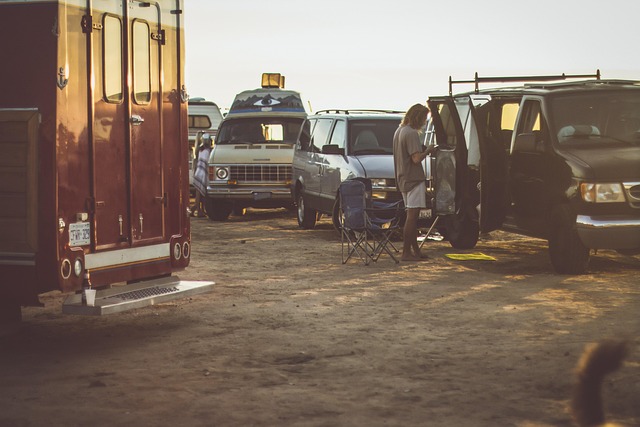When choosing a family-friendly campground, prioritize safety with well-maintained facilities, clear rules, and modern security measures like 24/7 staffing. Before visiting, understand fire regulations, practice good hygiene, research local wildlife, and pack essential supplies, including bug spray, sunscreen, and a first-aid kit. While there, follow responsible guidelines for campfire safety, maintain distance from wildlife, and be prepared for emergencies with up-to-date first aid kits tailored to outdoor activities.
When planning your next outdoor adventure, ensuring campground safety should be at the top of your list. This comprehensive guide navigates essential tips and regulations for a secure camping experience, catering to family-friendly fun. From selecting safe locations to mastering fire safety and emergency preparedness, we equip you with knowledge for a memorable trip. Learn how to interact peacefully with wildlife and prepare for any situation with our practical advice.
- Choosing Safe and Family-Friendly Campgrounds
- Essential Safety Precautions Before You Go
- Fire Safety Guidelines for Campfires
- Wildlife Interaction and Prevention Tips
- Emergency Preparedness and First Aid Kits
Choosing Safe and Family-Friendly Campgrounds
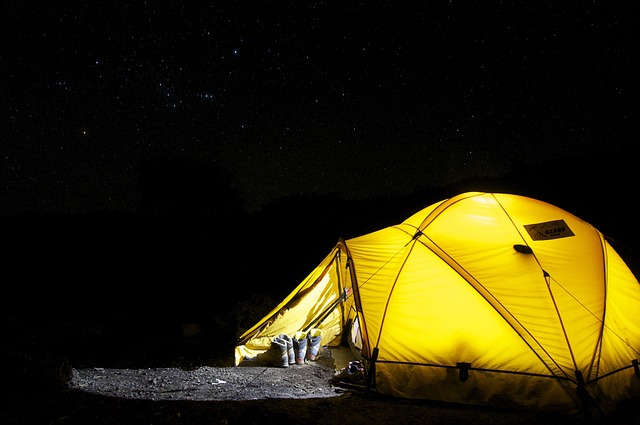
When selecting a campground, choosing one that prioritises safety and is designed with families in mind is paramount. Look for well-maintained facilities with clear and enforced rules. Modern campgrounds often offer excellent security measures like 24/7 staffing, video surveillance, and secure gates. These features ensure a peaceful stay while also safeguarding children from potential hazards.
Additionally, reputable campgrounds conduct regular safety inspections and maintain proper lighting to deter crime. They may also provide structured activities for kids, designated play areas, and clean washroom facilities with hot water—all contributing to a fun and safe environment for families to enjoy the outdoors.
Essential Safety Precautions Before You Go
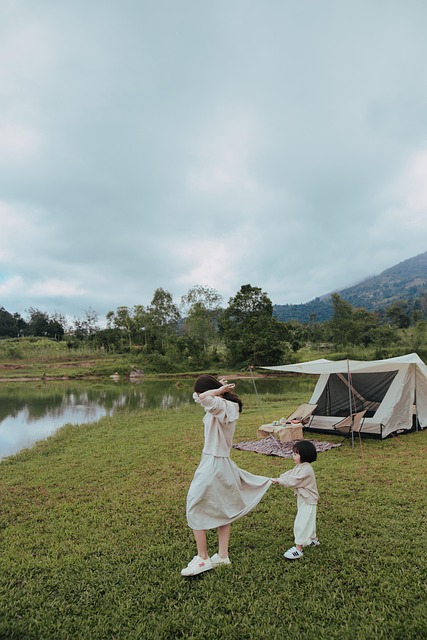
Before venturing into any campground, especially those that are family-friendly, it’s crucial to familiarize yourself with essential safety precautions. One of the primary considerations is fire safety; always bring a fire extinguisher and never leave campfires unattended. Ensure you understand local rules regarding open flames, as some areas may have restrictions during certain seasons or due to drought conditions. Another critical aspect is personal hygiene and sanitation, especially when using shared facilities. Educate your family members about proper handwashing techniques to prevent the spread of illnesses.
Additionally, be mindful of wildlife interactions. Researching common local animals and understanding how to store food securely can significantly reduce potential encounters. Remember to pack essential supplies like bug spray, sunscreen, and first-aid kits tailored to outdoor activities. Lastly, stay informed about emergency procedures specific to the campground, including evacuation plans and contact information for management or nearby authorities.
Fire Safety Guidelines for Campfires
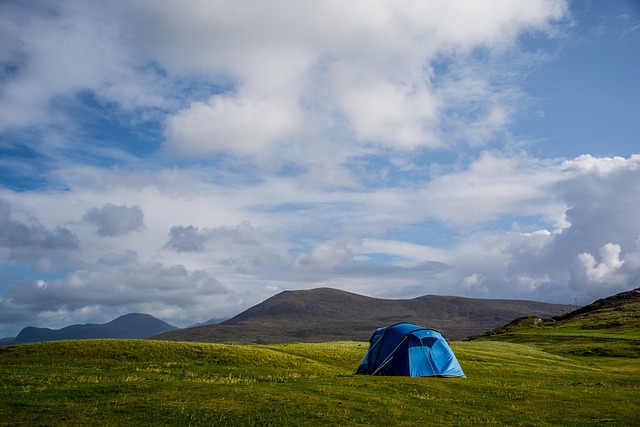
When visiting family-friendly campgrounds, fire safety should be a top priority for all campers. Before lighting any fires, familiarize yourself with local regulations and always use designated fire pits or rings. Keep a close eye on children and pets to prevent accidental fires, and never leave a fire unattended. Ensure that the area around the campfire is clear of dry leaves, branches, or any other flammable materials, maintaining a safe distance from trees, tents, and other structures.
Properly extinguish campfires completely before leaving the site. Douse the embers with water and stir them to ensure there are no hot spots remaining. Never leave a campfire burning overnight or in bad weather conditions. Remember that even small sparks can cause wildfires, so always practice responsible fire safety guidelines for a fun and safe camping experience at family-friendly campgrounds.
Wildlife Interaction and Prevention Tips

When visiting family-friendly campgrounds, it’s essential to be mindful of potential wildlife encounters. Many outdoor spaces are home to a variety of animals, and understanding how to interact with them safely is crucial for an enjoyable experience. One key tip is to always maintain a safe distance from wild animals and avoid feeding them. Keep your food securely stored in containers and never leave anything unattended that might attract animals, like pet food or garbage.
For families with young children, teaching them about wildlife behavior and the importance of respect for nature is vital. Encourage kids to observe animals from a distance and never try to touch or handle wild creatures. Many campgrounds offer educational programs or guided hikes where you can learn more about local fauna and co-existing peacefully with them. Following these simple precautions will ensure a peaceful and memorable camping trip for the whole family.
Emergency Preparedness and First Aid Kits
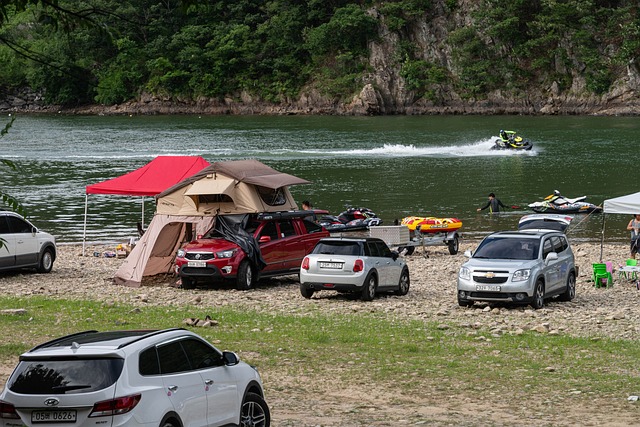
At family-friendly campgrounds, emergency preparedness and well-equipped first aid kits are non-negotiable. Before setting up camp, ensure you have a kit tailored to outdoor needs, including bandages, antiseptics, pain relievers, blister treatments, and any personal medications. Additionally, familiarize yourself with the campground’s emergency procedures and designated meeting points. Many campgrounds offer training sessions or provide resources on wilderness first aid, which can be invaluable for dealing with minor injuries or sudden changes in weather conditions.
In an emergency, quick response times can make all the difference. Keep your kit easily accessible and ensure everyone in your family knows where it is located. Also, stay informed about local emergency services and their contact information. Regularly updating and checking the contents of your kit is crucial to ensuring its effectiveness when needed, especially after prolonged storage or exposure to extreme conditions.
